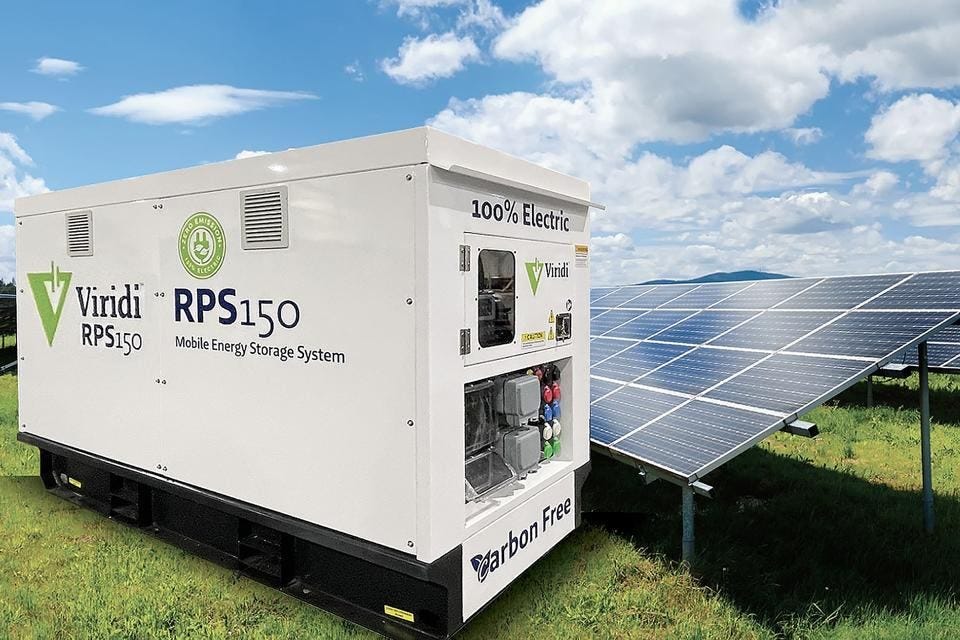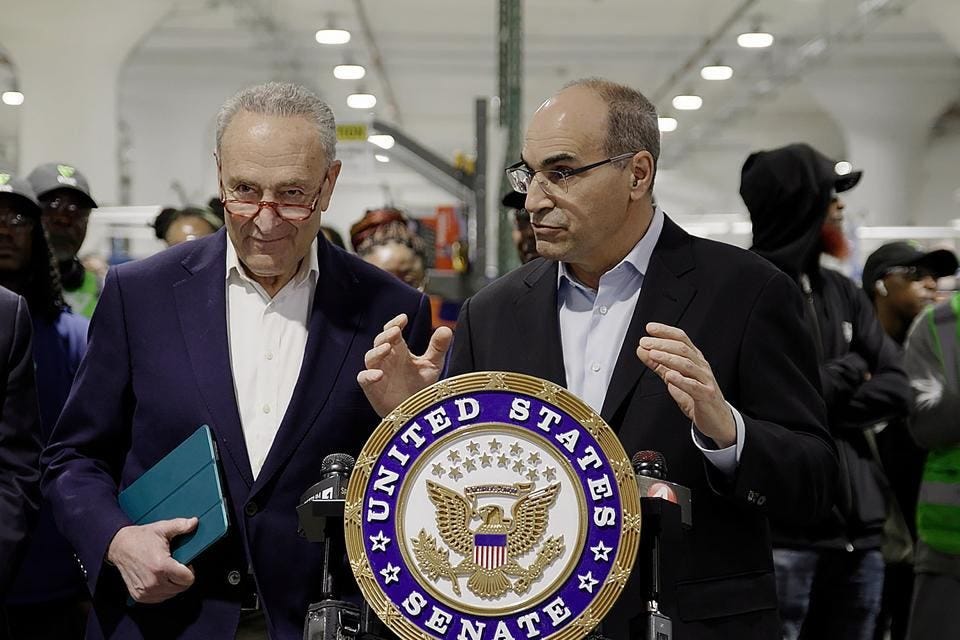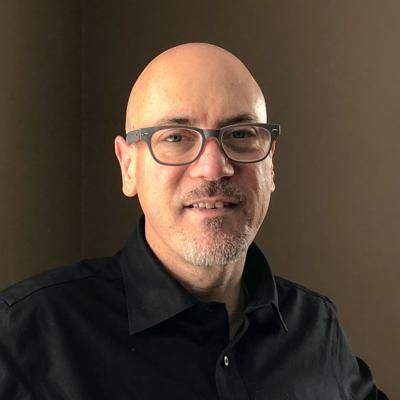Viridi Parente: Building Safety Into Energy Storage
This upstate New York startup has defused one of lithium-ion batteries’ greatest hazards. Can its fire-safe systems help spur the home battery storage market?

Music, while good for the soul, can be a source of significant environmental harm. Diesel generators at music festivals in tiny Switzerland alone emitted 128,000 tons of carbon dioxide in 2022, equivalent to the annual power consumption of over 16,000 households.
Replacing the dirty generators powering these events with safe, clean battery systems is the mission of Viridi Parente (Latin for “green parent”), an upstate New York start-up at the forefront of transforming energy storage with a unique focus on safety.
In a world increasingly reliant on renewable energy, safely storing excess energy has never been more critical. Viridi has developed innovative lithium-ion battery packs with integrated fire suppression systems that meet the stringent safety requirements of hospitals filled with oxygen tanks and other combustibles.
Viridi packs’ increased safety makes it easier for lithium-ion storage units to meet residential and commercial building codes, so more “behind-the-meter” batteries can be rolled out. BTM storage is crucial for the development of a modern, renewables-centric, low-emission grid as we enter the Age of Electrification.
Jon M. Williams, the founder of Viridi Parente, is no stranger to innovation, having founded and grown successful businesses in three fields: environmental engineering, heavy equipment rental and servicing, and real estate development.

Williams involvement with energy storage began when he sought to electrify his fleet of construction equipment to reduce emissions. When existing technologies failed to meet his needs, Williams decided to manufacture his own electric-powered heavy equipment, marking the birth of Viridi Parente in 2009.
Initially, Williams envisioned a network of electric construction equipment supported by neighborhood recharge centers that could also serve as grid load balancers, but he quickly encountered the hazard of thermal runaway in lithium-ion batteries.
Thermal runaway is a process where a single damaged battery cell overheats and triggers a chain reaction which can result in a fire. Realizing that this issue could limit widespread adoption of lithium-ion batteries, Williams shifted the company’s focus toward developing a safer battery.
After years of research and rigorous testing, Viridi Parente introduced the Anti-Propagation Thermal Management System, an innovative technology that physically isolates battery cells within a pack that integrates a fire suppression system in its design. If a cell begins to overheat, the system quickly cools it down, preventing a thermal runaway from spreading to neighboring cells. This fail-safe design addresses fire risk in lithium-ion battery installations, making them safer for a wide range of applications from homes and businesses to critical infrastructure like hospitals.
While Viridi’s fail-safe system reduces the energy density of its battery packs by around 20%, the increase in safety more than compensates for the lower density in sensitive BTM and mobile power applications.
Viridi Parente’s primary product is a modular 16-cell 50 kWh battery pack which can be connected to form larger units. These units have found a niche in the market as mobile battery systems that can supplement or replace diesel generators. Whether powering sporting events, music festivals, or emergency response operations, Viridi’s battery units offer a cleaner, quieter, and safer alternative to conventional fossil fuel-powered generators.
While Williams is pleased with the success of Viridi’s mobile battery units, he sees greater long-term potential in the BTM market, which the company is presently negotiating with distribution partners to enter at scale.
The company’s fail-safe technology is well-suited to BTM applications, where concerns about thermal runaway fires have hindered the adoption of residential battery systems and battery installations in densely populated areas. Viridi Parente’s technology could unlock new opportunities for widespread battery adoption in homes, where building codes emphasize fire safety.
Financially, Viridi Parente is well-positioned for growth. The company has raised $118 million through three funding rounds, with backing from prominent investors like Tom Golisano, the founder of Paychex, industry leaders like Sunbelt Rentals and National Grid Ventures, and Williams himself.
These funds have enabled the company to overcome preliminary supply constraints and scale up its production capabilities. A new automated production line will come online soon, significantly increasing Viridi Parente’s ability to meet growing demand. An upcoming Series D funding round should further fuel this expansion, allowing the company to rapidly increase its market presence.
Viridi Parente is deeply committed to making a positive impact on its local community in Buffalo, New York. Its GreenForce initiative hires and trains low-income and minority workers, reflecting its dedication to environmental and economic justice and broader efforts to establish Buffalo as a climate refuge.
The energy storage market is presently worth around $50 billion per year, and is forecast to double in the next few years; Viridi’s fail-safe technology positions it to capitalize on this dynamic market growth.
Viridi’s advancements in lithium-ion battery safety could boost the uptake of home and commercial energy storage, paving the way to develop a more efficient and modern grid capable of transitioning to renewable energy.
Intelligent investors take note.
Martha Martins, Virginia Mugo, and Jon Kostiner contributed reporting
Follow me on Twitter or LinkedIn. Check out my website or some of my other work here.
Most of my professional life has been spent as an equity analyst and as a consultant. Now I am leveraging my experience in the financial markets to help start-up ventures fight climate change and restore our ecosystem. Before becoming a Forbes contributor, I worked as a hedge fund risk manager, an investment banker in Tokyo and New York, a Market Strategist for Morningstar and as the Director of Research for a financial data start-up in Chicago as well as publishing a well-reviewed book about options (The Intelligent Option Investor, 2014, McGraw-Hill). My expertise in valuing private and public companies has been sought out by institutions such as the World Bank and Blackrock, and I have served as CFO and COO / CFO for several ClimateTech start-ups.






